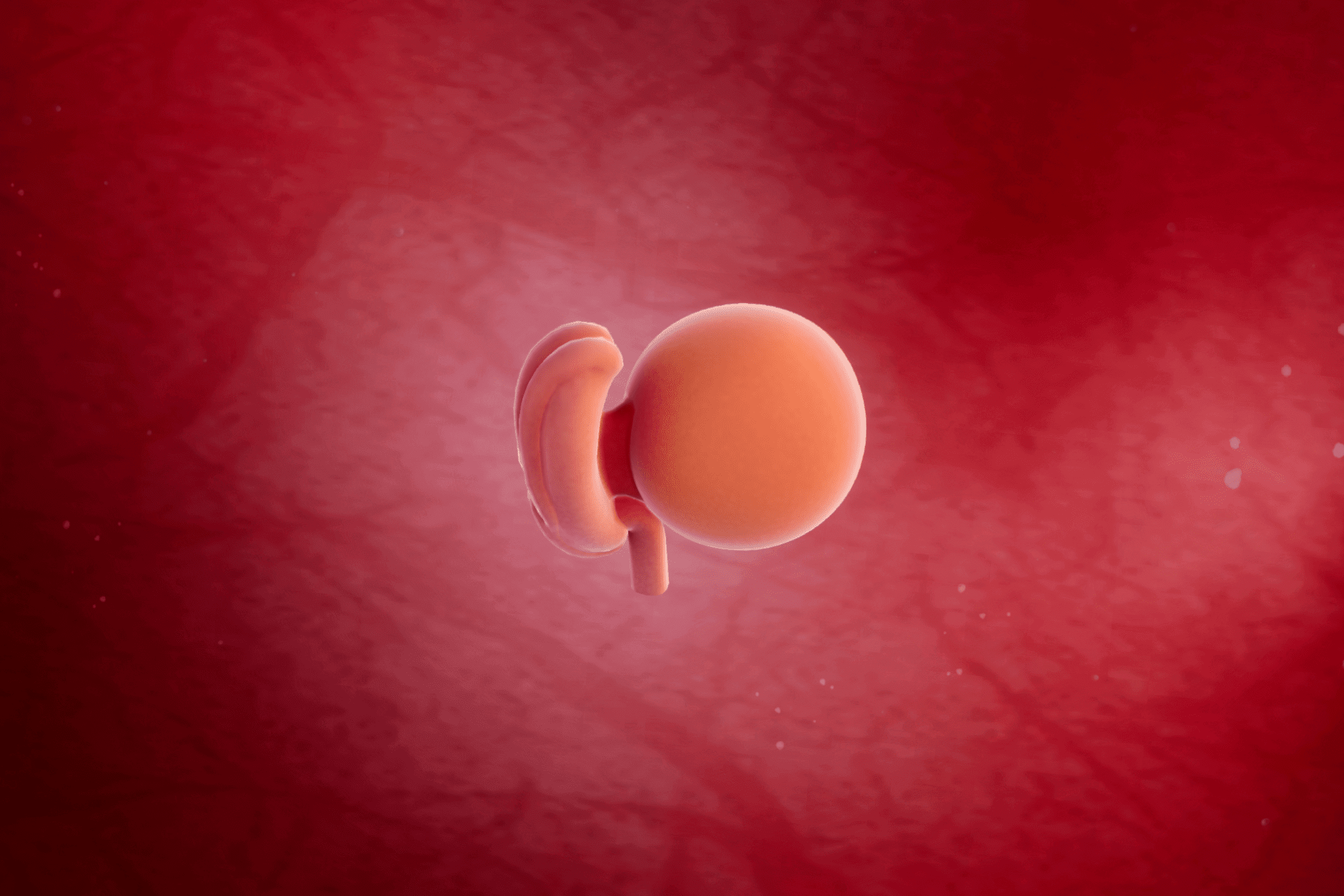Your Pregnancy, Week 4


If your pregnancy is unexpected, week 4 is right around the time you will probably suspect that those odd signs you’ve experienced over the past few weeks might be pregnancy related, especially after you miss your first period.
If this sounds like you, and you’ve had a positive pregnancy test, it can be tempting to panic, thinking, “But I’ve not been eating well, will I have hurt my baby?” Do not worry, you can start doing all the right things now, beginning with arranging a prenatal appointment with your doctor or midwife.
If you already know you’re pregnant because you’ve been testing since ovulation, congratulations on your first full month as a mum-to-be!
Your Body
At this point in your pregnancy, it’s still too early to be “showing,” but that doesn’t mean that your body isn’t undergoing major changes. Even by week 4 your hormone levels will already be shifting as oestrogen and progesterone levels drastically rise, which is necessary to facilitate the many changes your body undergoes to support a growing baby.
It’s important at this stage to take good care of yourself. Pay careful attention to what you are eating, and try to ensure a healthy diet based on whole grains, fruits, and vegetables. It’s likely too early in your pregnancy to experience the extreme hunger you hear many mums-to-be talk about, but that is no excuse to go on a strict diet. Weight gain during pregnancy is normal and healthy; a woman of average weight should gain about 11-15 kilograms during pregnancy. A woman of below average weight should aim to gain between 13-18 kilograms, while for an overweight woman, the gain should be 5-11 kilograms, depending on her body mass index (BMI).
What does this mean in terms of calories? Although this will differ for every woman, it is recommended that you add about 300 calories to your daily diet to support your growing baby. Remember, however, that these should be healthy calories, so adding 300 calories of daily ice cream is not recommended!
Otherwise, you should continue your exercise program, stay well-hydrated, avoid alcohol and recreational drugs, and keep your obstetrician or midwife informed of any prescription or over-the-counter drugs you take. Certain drugs have been shown to have an adverse effect on your baby or your body during pregnancy, so now is the time to run it past your health-care provider if you haven’t already done so. In terms of supplementation, continue to take your prenatal vitamins, which should include many necessary nutrients, especially folic acid.
Your Baby
The foetal age of your baby now is 2 weeks, and the size is about 1 mm in length, roughly the size of a large grain of sand.
Still called a blastocyst, the developing foetus is deeply embedded in the uterine wall, and the amniotic sac that will later protect your baby during gestation is beginning to form. By week 4, the uterine wall is thickening and forming the placenta, which will deliver nutrients and oxygen to your baby via the umbilical cord throughout your pregnancy. As the placenta grows, your blood volume will increase in the coming weeks.
Despite the embryo’s young age, specialised cells are already starting to form that will later make up organs, skin, and other structures. This includes the early brain and spinal cord, which are already beginning to form. In addition, the developing blastocyst is forming three “germ layers” that will each contribute to different organs.
The germ layers include:
- Ectoderm: nervous system, brain, skin, and hair
- Endoderm: gastrointestinal tract lining, liver, pancreas, and thyroid
- Mesoderm: Skeleton, connective tissues, blood system, urogenital system, and muscles.
Your Pregnancy, Week 3 < > Your Pregnancy, Week 5
Powered by Bundoo®










































